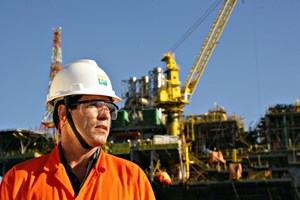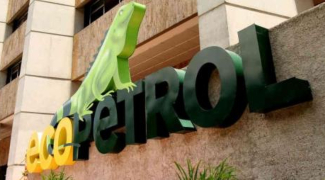(Bloomberg) – Colombian oil producer Ecopetrol SA is pursuing oil and gas deals in Brazil that could include a cluster of onshore Petrobras fields in the northeastern state of Bahia.

“We believe that Brazilian onshore has great potential, especially in natural gas,” Jorge Martínez, the head of Ecopetrol’s operations in Brazil, said in an interview from the company’s offices in Rio de Janeiro.
Ecopetrol is looking to leverage its expertise at onshore fields in Colombia to expand in Brazil, Latin America’s biggest oil producer. Petrobras and other oil majors have focused on mega fields in deep waters, and there are opportunities to expand output at onshore areas that have been overlooked, Martinez said. He expects natural gas demand to grow as a source of electricity for projects including data centers.
State-controlled Ecopetrol is willing to take on exploration risk at oil regions such as Potiguar and Reconcavo in Brazil’s northeast. Petrobras is considering selling its Polo Bahia Terra cluster of onshore fields, where operating costs are higher than at deep-water fields in the so-called pre-salt region, Chief Executive Officer Magda Chambriard said earlier this year.
“If Petrobras decides to sell its assets in the Bahia Terra Complex, or seek a partner, we would like to participate in that process,” said Martínez.
The two companies are already working together at Colombia’s biggest offshore natural gas discovery. The Sirius project could triple the country’s reserves if the deposit is commercially viable, potentially easing the nation’s shortfall. Petroleo Brasileiro SA, as Brazil’s national oil company is formally known, is the operator.
A divestment program under Petrobras’s previous management gave Brazilian and foreign drillers an opportunity to buy onshore fields that the state-controlled company considered low priority. Ecopetrol is looking for mergers and acquisitions with these companies to expand its reserves and production. It also plans to participate in future onshore licensing rounds.
“Good deals always find money,” said Martínez.
Oil and natural gas production in Brazil’s onshore sector began to decline in the early 2000s, and fell to a low of 206,792 barrels of oil equivalent per day in 2022, according to regulator ANP. The agency expects production to grow following the acquisition of Petrobras assets by new operators.

